The New Reality-Improving Use of Force in Todays Environment
MONDAY, FEBRUARY 5TH | 9:00AM TO 10:00AM | COMMERCE ROOM
Regrettably use of force tactics and training requirements have not been improved in many agencies. Ineffective techniques, overuse of Tasers and lack of proficiency training, characterize how agencies train and equip their staff. Fortunately, better techniques exist and leaders must not only move to a more grappling based style but institute a culture of proficiency where staff is trained until leaders are confident, they will prevail in physical encounters. The reality of cell phones and YouTube demand our failures of use of force be addressed.
PRESENTER: Mitch Cunningham, Chief Law Enforcement Advisor, National Sheriffs’ Association
 Deputy Chief Mitch Cunningham (ret.) has been a police officer for 37 years, most recently as Deputy Chief for the Wilmington North Carolina Police Department. Prior to that he was a police officer for the Montgomery County Department of Police, in Maryland. There he started a number of crime fighting initiatives including the first Career Criminal Unit, the first regional auto theft team and started the regional data sharing system NCR LInX, in the National Capitol Region which connects hundreds of police agencies, leading to countless arrests and supporting anti-terrorism efforts in the wake of 9-11.
Deputy Chief Mitch Cunningham (ret.) has been a police officer for 37 years, most recently as Deputy Chief for the Wilmington North Carolina Police Department. Prior to that he was a police officer for the Montgomery County Department of Police, in Maryland. There he started a number of crime fighting initiatives including the first Career Criminal Unit, the first regional auto theft team and started the regional data sharing system NCR LInX, in the National Capitol Region which connects hundreds of police agencies, leading to countless arrests and supporting anti-terrorism efforts in the wake of 9-11.
As Deputy Chief for Support Services and later Patrol Bureau at WPD, he started a number of successful efforts to drive down gang violence plaguing the city. He also started the agency’s first Peer Support team, a college scholarship fundraiser Send a Cop to College to assist with the professionalization of its future leaders and implemented the second program in North Carolina that outfitted WPD officers with naloxone. He also began the LEAD program, a pre-arrest diversion program and helped to create the Quick Response Team for the region to help reduce opioid addiction.
He is a certified training instructor who worked as a law enforcement training coordinator for Cape Fear Community College as well as teaching for the University of North Carolina at Wilmington and Louisiana State University. He is currently the Chief Law Enforcement Advisor for the National Sheriffs Association.
Building a Successful Sheriff’s Office in Uncertain Times
MONDAY, FEBRUARY 5TH | 9:00AM TO 10:00AM | STATE ROOM
This seminar or keynote focuses on the essential aspects of leading a Sheriff’s Office that include: developing a management team, achieving a great organizational culture, goal-oriented development at year one through year five, and public transparency through social media.
PRESENTER: Sheriff Frank Leonbruno, Lake County Sheriff’s Office
 Frank Leonbruno currently serves as the Sheriff of Lake County, Ohio. He has served at the Lake County Sheriff’s Office for the past 35 years a Corrections Officer, Corrections Sergeant, 17 years as Captain and Jail Administrator, SWAT Team Negotiator, Corrections and Police Academy instructor, Chief Deputy and Sheriff since 2019. He is responsible for the overall day-to-day operations of the 250+ employees in the Sheriff’s Office, including $20 million+ operational budget. Sheriff Leonbruno has his master’s degree in Administration of Justice and Security, Bachelor’s Degrees in History and Philosophy, a graduate of the 237th Session of the FBI National Academy, as well as a graduate from the Certified Law Enforcement Executive’s Program and Police Executive Leadership College. Frank was the founder of the Transformational Leadership Development Group providing seminars on the various aspects of leadership in both the public and private sectors. Frank is has been married to his wife Heidi for the past 34 years. Together they have two sons, two daughters, and 8 grandchildren. Both of their sons, and one of their son-in-law’s, are fulltime police officers in communities in Lake County, Ohio.
Frank Leonbruno currently serves as the Sheriff of Lake County, Ohio. He has served at the Lake County Sheriff’s Office for the past 35 years a Corrections Officer, Corrections Sergeant, 17 years as Captain and Jail Administrator, SWAT Team Negotiator, Corrections and Police Academy instructor, Chief Deputy and Sheriff since 2019. He is responsible for the overall day-to-day operations of the 250+ employees in the Sheriff’s Office, including $20 million+ operational budget. Sheriff Leonbruno has his master’s degree in Administration of Justice and Security, Bachelor’s Degrees in History and Philosophy, a graduate of the 237th Session of the FBI National Academy, as well as a graduate from the Certified Law Enforcement Executive’s Program and Police Executive Leadership College. Frank was the founder of the Transformational Leadership Development Group providing seminars on the various aspects of leadership in both the public and private sectors. Frank is has been married to his wife Heidi for the past 34 years. Together they have two sons, two daughters, and 8 grandchildren. Both of their sons, and one of their son-in-law’s, are fulltime police officers in communities in Lake County, Ohio.
Implementation of Medications for Opioid Use Disorder Within a Correctional Framework
MONDAY, FEBRUARY 5TH | 11:00AM TO 12:00PM | COMMERCE ROOM
A response to the current opioid crisis must be a multilateral response to have any hope of mitigating its impact. In 2021 the Massachusetts Department of Health and Human services reported 2,290 opioid related deaths, 185 more deaths than 2020. It is the opinion of the Essex County Sheriff’s Department that corrections must be an active participant in this response. It is our hope that within this presentation audience members are provided with a practical correctional response to this crisis. A concise description and framework for developing an effective correctional based opioid treatment program will be a primary objective. Presentation will be delivered by medication assisted treatment practitioners with specific applications within a correctional context.
PRESENTERS: Brooke Pessinis, Assistant Superintendent, Essex County Sheriff’s Department, Jennifer Padre, Assistant Superintendent, Essex County Sheriff’s Department, Jason Faro, Assistant Superintendent, Essex County Sheriff’s Department
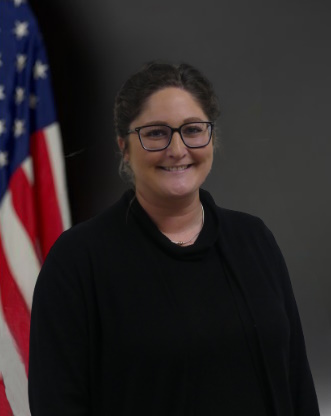 Brooke Pessinis is currently an Assistant Superintendent and Director of the Medication Assisted Treatment Program at the Essex County Sheriff’s Department. She is dual licensed Mental Health Counselor who specializes in addiction and trauma services. She has been at the forefront of developing one of the most comprehensive MOUD programs in a correctional setting. Brooke has worked to produce a fully immersive and multidisciplinary treatment model that focuses on patient centered care partnered with personalized medication treatment. Brooke has been working in mental health and addiction for 11 years with her last 4 being in the field of correctional addiction services. She plans to continue promoting pushing the limits of what correctional MOUD programs are capable of while teaching others how to accomplish was some think is unobtainable.
Brooke Pessinis is currently an Assistant Superintendent and Director of the Medication Assisted Treatment Program at the Essex County Sheriff’s Department. She is dual licensed Mental Health Counselor who specializes in addiction and trauma services. She has been at the forefront of developing one of the most comprehensive MOUD programs in a correctional setting. Brooke has worked to produce a fully immersive and multidisciplinary treatment model that focuses on patient centered care partnered with personalized medication treatment. Brooke has been working in mental health and addiction for 11 years with her last 4 being in the field of correctional addiction services. She plans to continue promoting pushing the limits of what correctional MOUD programs are capable of while teaching others how to accomplish was some think is unobtainable.
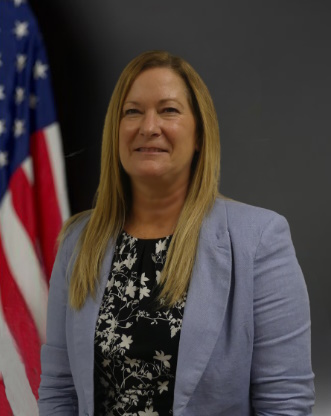 Jennifer Padre has over 25 years of clinical experience as a social worker in a variety of settings. She is currently an Assistant Superintendent with the Essex County Sheriff’s Department and serves as the Clinical Director. Her previous positions include working for the Essex County District Attorney’s Office and as the Mental Health Director of the Essex County Correctional Facility. She holds a Master of Social Work degree from Boston University and is a Licensed Independent Clinical Social Worker (LICSW) with specialty training in Suicide Prevention, Trauma Informed Practice, Dual-Diagnosis treatment; and First- Responder/Disaster Response treatment. Jennifer has experience in working with vulnerable populations both in the community and while incarcerated. Her experience includes child and elder protective services; victim support and advocacy; emergency/crisis response; and program development.
Jennifer Padre has over 25 years of clinical experience as a social worker in a variety of settings. She is currently an Assistant Superintendent with the Essex County Sheriff’s Department and serves as the Clinical Director. Her previous positions include working for the Essex County District Attorney’s Office and as the Mental Health Director of the Essex County Correctional Facility. She holds a Master of Social Work degree from Boston University and is a Licensed Independent Clinical Social Worker (LICSW) with specialty training in Suicide Prevention, Trauma Informed Practice, Dual-Diagnosis treatment; and First- Responder/Disaster Response treatment. Jennifer has experience in working with vulnerable populations both in the community and while incarcerated. Her experience includes child and elder protective services; victim support and advocacy; emergency/crisis response; and program development.
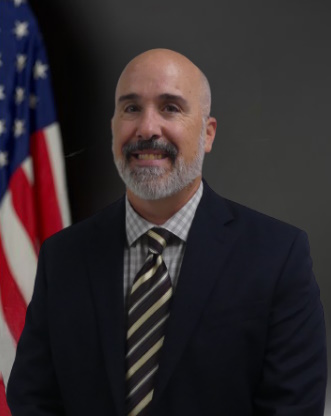 Jason W. Faro has served with the Essex County Sheriff’s Office since 1998, rising through the ranks from a correctional officer to his present position. He is currently responsible for the day-to-day operations of the newly formed Specialized Reentry Services Division. Assistant Superintendent Faro currently manages all services that involve medication assisted treatment, offender diversion programming and pretrial reentry services. Current initiatives involve breaking “traditional practice” through the adoption of validated classification methods. Assistant Superintendent Faro holds a Bachelor of Science degree in Criminal Justice and Political Science and a Master of Science degree in Human Services. He is a graduate of the Essex County Sheriff’s Department Basic Training Academy, Middleton, Massachusetts and the Federal Law Enforcement Training Center, U.S. Border Patrol Academy Class 284, Artesia, New Mexico. Assistant Superintendent Faro also regularly acts as adjunct faculty at local colleges instructing on subjects of criminology, corrections, and treatment within correctional settings.
Jason W. Faro has served with the Essex County Sheriff’s Office since 1998, rising through the ranks from a correctional officer to his present position. He is currently responsible for the day-to-day operations of the newly formed Specialized Reentry Services Division. Assistant Superintendent Faro currently manages all services that involve medication assisted treatment, offender diversion programming and pretrial reentry services. Current initiatives involve breaking “traditional practice” through the adoption of validated classification methods. Assistant Superintendent Faro holds a Bachelor of Science degree in Criminal Justice and Political Science and a Master of Science degree in Human Services. He is a graduate of the Essex County Sheriff’s Department Basic Training Academy, Middleton, Massachusetts and the Federal Law Enforcement Training Center, U.S. Border Patrol Academy Class 284, Artesia, New Mexico. Assistant Superintendent Faro also regularly acts as adjunct faculty at local colleges instructing on subjects of criminology, corrections, and treatment within correctional settings.
NCIC Violent Person File
MONDAY, FEBRUARY 5TH | 11:00AM TO 12:00PM | STATE ROOM
The number of police officers killed and assaulted in the line of duty continues to increase each year. New reports indicate the number of officers shot in the line of duty has increased more than 25 percent since 2020. Obviously, these numbers are not only alarming but unacceptable. Many in the law enforcement community are left searching for methods to protect our law enforcement officers. The NCIC Violent Person File (VPF) was created in 2012 exclusively for this purpose.
The VPF was designed to alert officers that individuals they are encountering may have the propensity for violence against them. The information, including a warning, is returned during tactical encounters, such as traffic stops, where we have seen many officers ambushed. Although, the file was created in 2012, it has been extremely underutilized. Participation in this file is voluntary; however, we believe that increasing the awareness and participation in the file is vital to the safety of the law enforcement community.
PRESENTER: Patsy Sabatelli, Supervisory Management and Program Analyst, DOJ/FBI
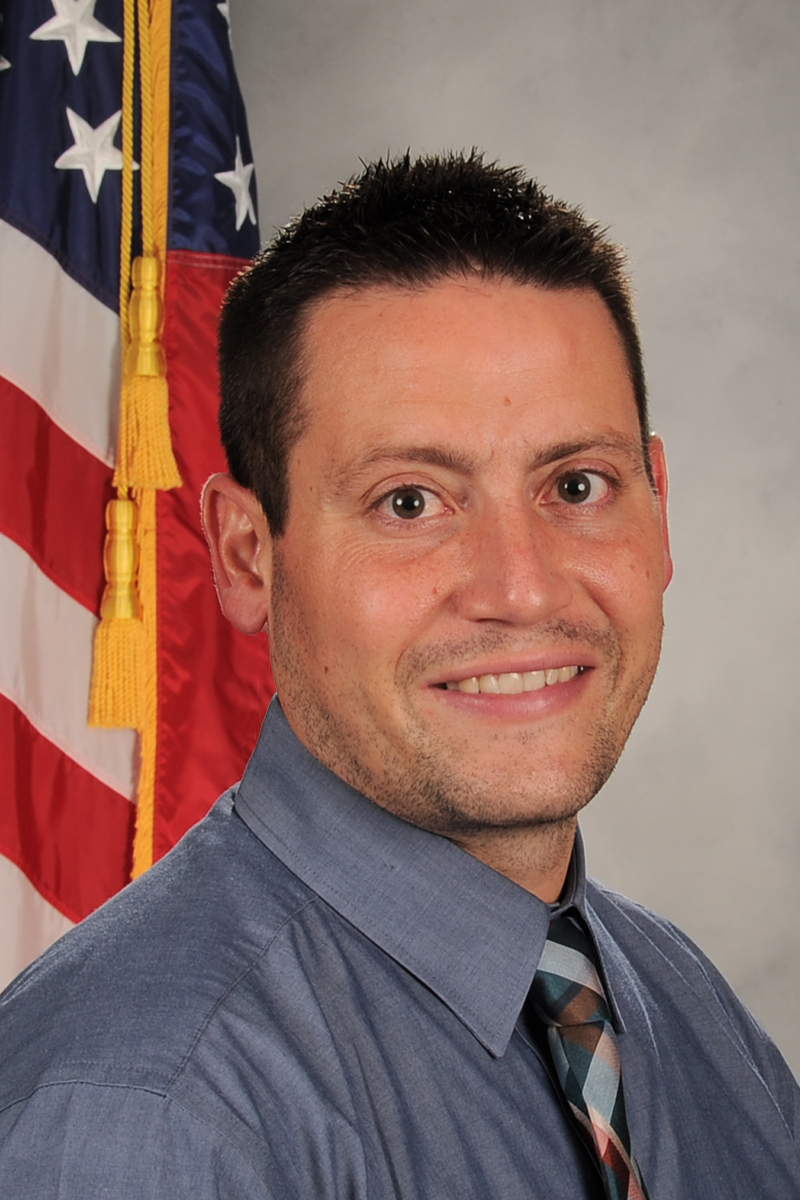
Mr. Sabatelli is a Supervisory Management and Program Analyst with the Federal Bureau of Investigation, Criminal Justice Information Services (CJIS) Division. He brings over 12 years of experience, all dealing in some capacity with the National Crime Information Center (NCIC) System. In his current position, Mr. Sabatelli manages a team responsible for providing NCIC system and policy support to all federal, state, local and tribal law enforcement and criminal justice agencies. Specifically, Mr. Sabatelli‘s team provides subject matter expertise for all NCIC files and manages connectivity and access to CJIS Division systems. Mr. Sabatelli also has a background in managing a team responsible for providing investigative and operational support to law enforcement and criminal justice agencies nationwide.
Shared Life Experiences: Augmenting Treatment and Recovery in Criminal Justice Settings Through Peer Support
MONDAY, FEBRUARY 5TH | 12:15PM TO 1:15PM | COMMERCE ROOM
Peer support has been defined generally as offering help, based on the shared understanding, respect and mutual empowerment between people in similar situations. Because the foundation of peer support lies in shared lived experiences, only recovering individuals may engage in peer services. Peer supporters assist in setting recovery goals, developing a recovery action plan, solving problems related to recovery, and in providing education on recovery as well as trauma services. The vast majority of individuals involved in the criminal justice system present with substance use disorder (SUD). A 2010 report on the impact of substance use on governmental resources found that 65% of adjudicated offenders meet the criteria for SUD; the same report found 78% of violent crimes and 83% of property crimes involved alcohol and/or drug use. Corrections settings represent an opportunity on the sequential intercept map to fill gaps in services and provide assistance designed to reduce future involvement with law enforcement and increase treatment entry and retention, as well as support continued recovery. Researchers suggest that corrections settings should afford inmates mechanisms to source meaning and purpose while serving time, including the opportunity for peer support to encourage incarcerated individuals to engage in prosocial interaction and personally meaningful activity, while offering a source of optimism during the term of incarceration, as well as ease anxiety over the court process and interaction with probation officers, jail staff, and the judiciary. Peer support offered in correction settings represents a low-cost means to make productive use of local jail sentences or pre trial detention.
This program will begin with a review of the purpose and dynamic of evidence-based peer support, as well as the general certification process involved. The focus will then turn to historical data collected on justice-involved individuals and how peer support, when offered by individuals not only in recovery but with criminal backgrounds, provides successful intervention. The program then walks participants through the steps the Montgomery County Sheriff’s office took in 2017 to implement successful peer support programming. It will identify a framework for developing a peer support program in a county jail or community-based correctional facility, addressing risk versus benefit and accreditation concerns that are often questioned. It will identify how to select appropriate peer supporters, market and deliver peer services that produce meaningful outcomes. Using the sequential intercept model, the presentation will further identify the means to take a program that is offered as a detention intervention and continue the support post-incarceration, including through probation supervision and specifically as a support to specialty dockets. Additionally, sources for funding corrections-based peer support programs will be addressed. The program will conclude with a discussion on the successful corrections-based peer support program implemented by the Montgomery County, Ohio Sheriff’s Department.
PRESENTER: Mary Katherine Huffman, Judge and American Bar Association Judicial Fellow, American Bar Association, Teresa Russell, Director of Criminal Justice Outreach, Montgomery County Sheriff’s Department
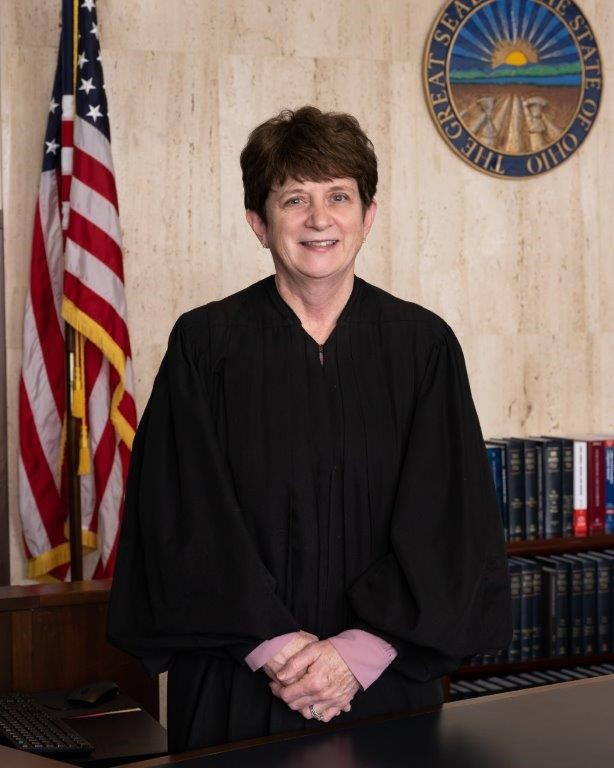 KATE HUFFMAN served for twenty-one years as a General Division Judge on the Montgomery County Common Pleas Court and was elected to the Second District Court of Appeals in 2022. Judge Huffman received her B.A. in political science from Wright State University and her J.D. from the University of Dayton School of Law, graduating summa cum laude from each institution, and an M.A. in Judicial Studies from the University of Nevada; she earned a Certificates in Judicial Development General Jurisdiction Trial Skills an Judicial Development Dispute Resolution Skills from the National Judicial College. Judge Huffman currently serves as the American Bar Association Judicial Fellow, serving as a teacher, writer, consultant, and liaison on impaired driving to those in the criminal justice community around the country.
KATE HUFFMAN served for twenty-one years as a General Division Judge on the Montgomery County Common Pleas Court and was elected to the Second District Court of Appeals in 2022. Judge Huffman received her B.A. in political science from Wright State University and her J.D. from the University of Dayton School of Law, graduating summa cum laude from each institution, and an M.A. in Judicial Studies from the University of Nevada; she earned a Certificates in Judicial Development General Jurisdiction Trial Skills an Judicial Development Dispute Resolution Skills from the National Judicial College. Judge Huffman currently serves as the American Bar Association Judicial Fellow, serving as a teacher, writer, consultant, and liaison on impaired driving to those in the criminal justice community around the country.
 Teresa Russell joined the Montgomery County Sheriff’s Office in June 2017 as a Treatment Coordinator assigned to the Jail Division. Teresa was tasked with oversight of contracted medical, mental health and re-entry services for inmates. Teresa came to MCSO with 20+ years of experience in community behavioral health, with a focus on Vocational Rehabilitation and Forensic Services. During her first full year of service with MCSO, Teresa successfully implemented a Vivitrol Release Program, developed Peer Recovery Services within the jail and worked to streamline appropriate discharge planning services for inmates. In 2020, Teresa assumed the role of Director of Criminal Justice Outreach for the Montgomery County Sheriff’s Office, where she continues to oversee jail-based services and collaboration with court and community officials to develop initiatives that support jail diversion. Teresa is an active member of the Sheriff’s Drug Free Coalition and representative for most criminal justice taskforces within Montgomery County and around Ohio. Teresa received a Bachelor’s Degree in Psychology from Wright State University and a Master’s Degree in Business Administration from Tiffin University.
Teresa Russell joined the Montgomery County Sheriff’s Office in June 2017 as a Treatment Coordinator assigned to the Jail Division. Teresa was tasked with oversight of contracted medical, mental health and re-entry services for inmates. Teresa came to MCSO with 20+ years of experience in community behavioral health, with a focus on Vocational Rehabilitation and Forensic Services. During her first full year of service with MCSO, Teresa successfully implemented a Vivitrol Release Program, developed Peer Recovery Services within the jail and worked to streamline appropriate discharge planning services for inmates. In 2020, Teresa assumed the role of Director of Criminal Justice Outreach for the Montgomery County Sheriff’s Office, where she continues to oversee jail-based services and collaboration with court and community officials to develop initiatives that support jail diversion. Teresa is an active member of the Sheriff’s Drug Free Coalition and representative for most criminal justice taskforces within Montgomery County and around Ohio. Teresa received a Bachelor’s Degree in Psychology from Wright State University and a Master’s Degree in Business Administration from Tiffin University.
Privately Made Firearms: Familiarization and Emerging Trends of Ghost Guns
MONDAY, FEBRUARY 5TH | 3:15PM TO 4:15PM | STATE ROOM
The software to 3D print firearms is readily available and these firearms are showing up at crime scenes regularly, is your office prepared to deal with them? This seminar will help you to identify and recognize Privately Made Firearms (PMF) and the emerging trends associated with PMF’s across the country. Actions you will need to take to prepare your deputies and property/evidence personnel to deal with this emerging threat will be discussed.
PRESENTERS: Special Agent Justin Hayes, ATF, Special Agent Matthew Leonard, ATF
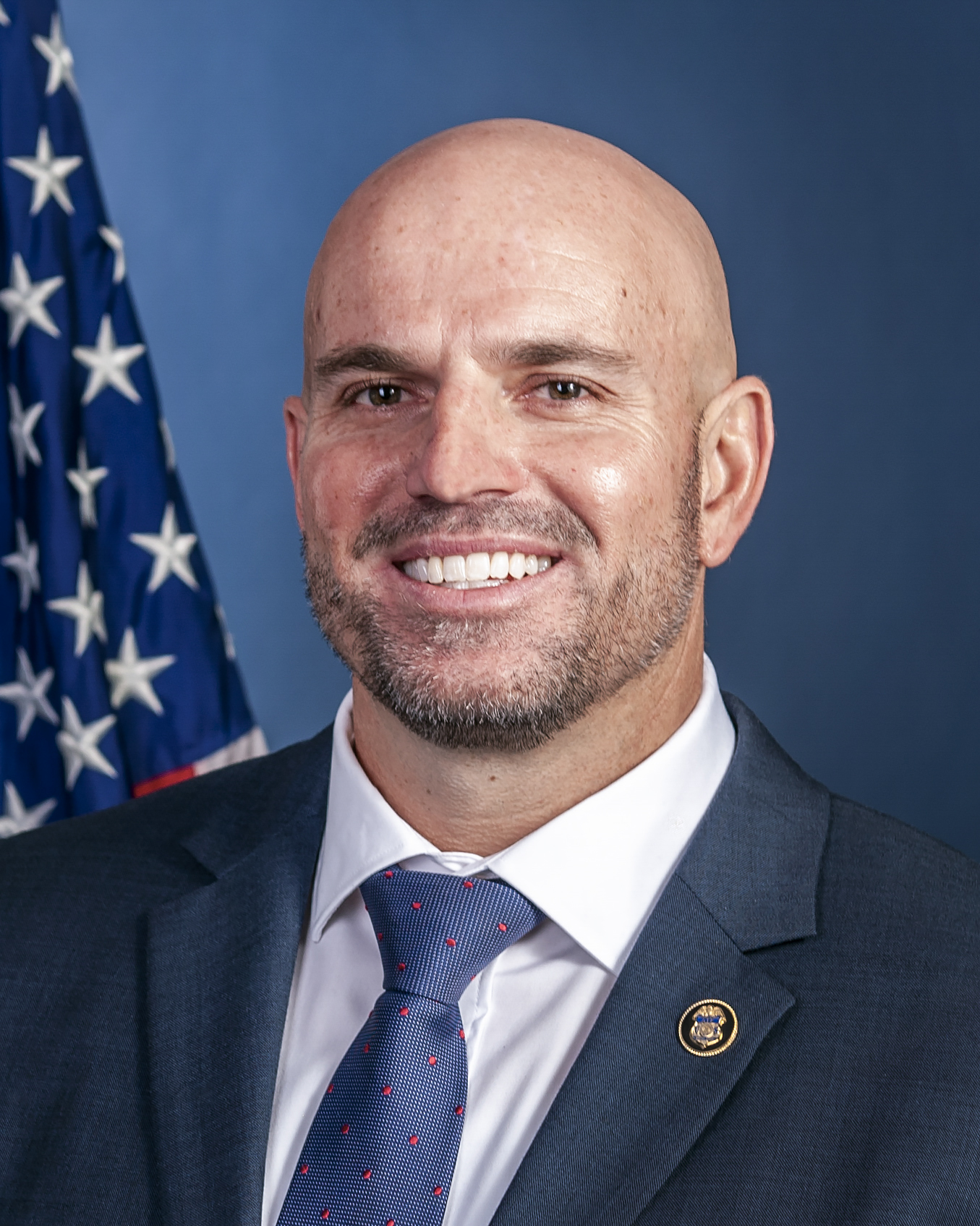 Special Agent Justin Hayes is currently serving as the National Privately Made Firearms Coordinator, Bureau of Alcohol, Tobacco, Firearms and Explosives (ATF) Headquarters. Prior to this assignment, SA Hayes was the Resident Agent in Charge for the Birmingham Field Office Group III. SA Hayes began his career with ATF in 2014 as a Special Agent assigned to the Jackson (MS) Field Office and later worked in the Chicago Field Division as a member of the Chicago Crime Gun Strike Force. Prior to joining ATF SA Hayes spent 14 years in local law enforcement with assignments in Patrol, Street Crimes Unit, SWAT, Criminal Investigations rising to the rank of Detective Sergeant. SA Hayes also served a total 28-years in the military serving in the US Navy, Mississippi Army National Guard and US Air Force Reserve, retiring in April 2023 as Senior Master Sergeant from USAF Reserve.
Special Agent Justin Hayes is currently serving as the National Privately Made Firearms Coordinator, Bureau of Alcohol, Tobacco, Firearms and Explosives (ATF) Headquarters. Prior to this assignment, SA Hayes was the Resident Agent in Charge for the Birmingham Field Office Group III. SA Hayes began his career with ATF in 2014 as a Special Agent assigned to the Jackson (MS) Field Office and later worked in the Chicago Field Division as a member of the Chicago Crime Gun Strike Force. Prior to joining ATF SA Hayes spent 14 years in local law enforcement with assignments in Patrol, Street Crimes Unit, SWAT, Criminal Investigations rising to the rank of Detective Sergeant. SA Hayes also served a total 28-years in the military serving in the US Navy, Mississippi Army National Guard and US Air Force Reserve, retiring in April 2023 as Senior Master Sergeant from USAF Reserve.
 Matthew Leonard has been an ATF Special Agent since September 2014 where he was assigned to a violent crime task force in Prince George’s County, Maryland, having worked numerous cases involving organized crime, gangs, violent drug trafficking organizations, and armed human trafficking networks. Prior to service with ATF, SA Leonard was a firefighter with the District of Columbia Fire/EMS Department. SA Leonard has held numerous roles with ATF including as a medic for the Special Response Team, Interstate Nexus Expert, and most recently as the Project Officer for the National Privately Made Firearm Coordinator in Washington D.C. SA Leonard now serves as the Firearms Instructor Coordinator for the Baltimore Field Division as well as the PMF Trainer for the region. SA Leonard has a BS in Fire Science from the University of Maryland and a MS in Management from Johns Hopkins University and the Police Executive Leadership Program Certificate from same. SA Leonard has had the privilege to guest lecture on several occasions for the United Kingdom’s National Crime Agency Firearms Targeting Center, and Europol EMPACT Firearms committee relating to PMF and firearms technology. SA Leonard has also had the honor of speaking at numerous events nationwide about PMFs and their ongoing threat and impact on violent crime.
Matthew Leonard has been an ATF Special Agent since September 2014 where he was assigned to a violent crime task force in Prince George’s County, Maryland, having worked numerous cases involving organized crime, gangs, violent drug trafficking organizations, and armed human trafficking networks. Prior to service with ATF, SA Leonard was a firefighter with the District of Columbia Fire/EMS Department. SA Leonard has held numerous roles with ATF including as a medic for the Special Response Team, Interstate Nexus Expert, and most recently as the Project Officer for the National Privately Made Firearm Coordinator in Washington D.C. SA Leonard now serves as the Firearms Instructor Coordinator for the Baltimore Field Division as well as the PMF Trainer for the region. SA Leonard has a BS in Fire Science from the University of Maryland and a MS in Management from Johns Hopkins University and the Police Executive Leadership Program Certificate from same. SA Leonard has had the privilege to guest lecture on several occasions for the United Kingdom’s National Crime Agency Firearms Targeting Center, and Europol EMPACT Firearms committee relating to PMF and firearms technology. SA Leonard has also had the honor of speaking at numerous events nationwide about PMFs and their ongoing threat and impact on violent crime.
